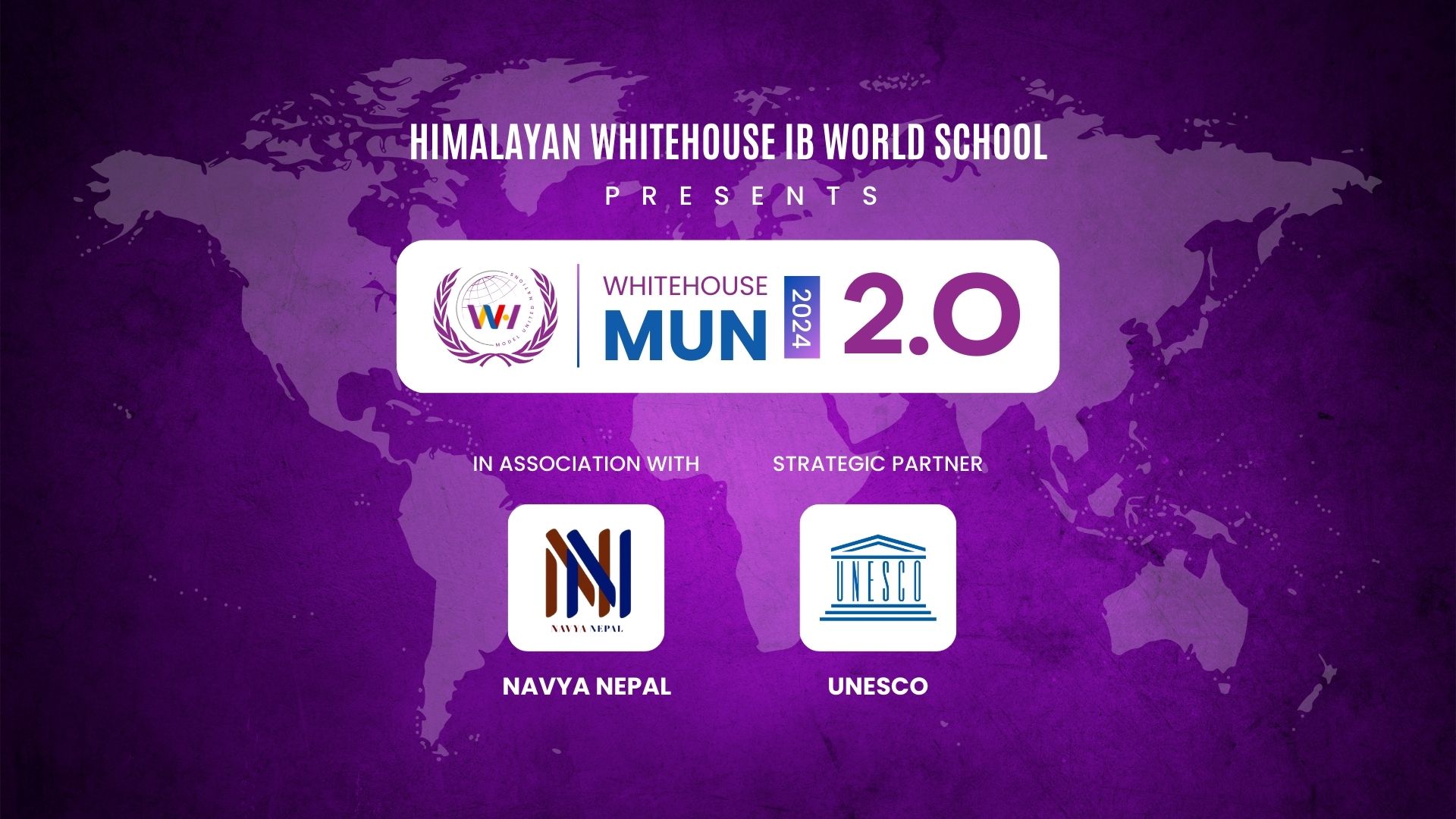Introduction to Model United Nations (MUN)
Model United Nations, commonly known as MUN, is an educational simulation in which students learn about diplomacy, international relations, and the United Nations. Participants, known as delegates, role-play as diplomats representing a country in a simulated UN committee, such as the Security Council or General Assembly. They debate pressing global issues, draft resolutions, and collaborate to find solutions, enhancing their understanding of global politics and developing critical skills such as public speaking, negotiation, and leadership.
Event Details
Himalayan WhiteHouse IB World School Presents WhiteHouse MUN 2024
- Dates: September 20, 21 & 22, 2024
- In Association With: NAVYA NEPAL
- Strategic Partner: UNESCO
- Venue: Himalayan WhiteHouse IB World School Premises
Why Participate?
WhiteHouse MUN 2024 is an exceptional opportunity for students to engage in a dynamic and immersive learning experience. By participating, students will:
- Gain a deeper understanding of international issues and the workings of the United Nations.
- Develop crucial skills such as critical thinking, public speaking, and negotiation.
- Network with like-minded peers and potential mentors.
- Experience the thrill of representing a country and contributing to global discussions.
Registration Information
Schools are invited to register their students to participate as delegates in this prestigious event. It is an excellent platform for young minds to explore their interests in international relations, diplomacy, and global affairs.
Don’t miss the chance to be part of this transformative experience. Register your students today and help them take the first step towards becoming future leaders.
For more information and registration details, please visit our website or contact our event coordinators.
Himalayan WhiteHouse IB World School is proud to host this event in association with NAVYA NEPAL, with UNESCO as our strategic partner, ensuring an enriching and impactful experience for all participants. Join us for WhiteHouse MUN 2024 and be a part of shaping the leaders of tomorrow.





